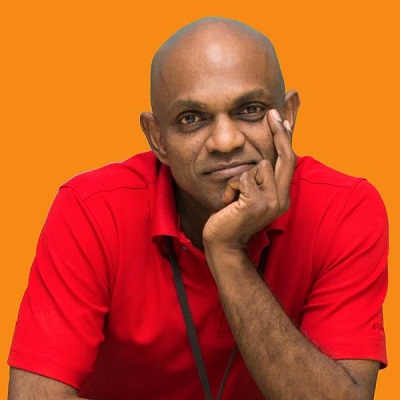
WSO2 Founder Sanjiva Weerawarana visits Australia encouraging innovation through a thriving and inclusive global tech community
Dr. Sanjiva Weerawarana (pictured), WSO2 Founder and CEO, will be visiting Australia this month. He will engage with Australian leaders to discuss the latest in technology innovation and showcase the recently announced Avinya Foundation, a not-for-profit giving more children in Sri Lanka the opportunity for a professional future via vocational careers.
At the forefront of digital entrepreneurship, Dr. Weerawarana founded WSO2 with the vision to reinvent the way enterprise middleware was developed, sold, delivered and supported through an open-source model. Known for his work on Web Services standards, including WSDL, BPEL, and WS-Addressing, he is also the creator of the Ballerina programming language and recipient of the 2022 IEEE TCSVC Research Innovation Award.
“I have been lucky to be at the centre of several major software technology waves that have provided opportunities to reshape how technologists build solutions and experiences that improve the way we work, live and play,” said Dr. Weerawarana.
Through more than 30 years of innovation, leading the creation of web services and open-source technologies, Dr. Sanjiva Weerawarana was a co-inventor and co-author of specifications. Including the Web Services Description Language (WSDL), a game changer in enabling interoperability across formerly disparate environments, and Business Process Execution Language for Web Services (BPEL4WS), laying the technical foundations for service composition. Additionally, he was a contributor to and initiator of the WS-Policy and WS-Addressing original specifications, among others.
He is also an originator of open-source implementations, such as the Apache Axis2 web service engine, a breakthrough in the adoption of service computing. More recently, building on concepts he first introduced with WSDL and BPEL4WS, Dr. Weerawarana invented the Ballerina open-source programming language. Ballerina significantly simplifies the development of distributed applications, especially by orchestrating microservices or endpoints represented by APIs. Additionally, he has shaped open-source development organisationally, most notably through his work with the Lanka Software Foundation (LSF), which he co-founded in 2003.
At the same time, Dr. Weerawarana has helped to lead the commercial application of open-source software through WSO2. Since founding the company in 2005, he has continued to serve as chief architect, driving innovations used by Fortune 500 companies, top universities, and governments worldwide. WSO2’s newest innovation is the Choreo digital platform as a service, which applies fundamentals from BPEL4WS but hides the complexities of service orchestration and empowers non-programming-savvy people to build distributed service-based or API-based applications. Generally available since March 2022, Choreo is the first commercial solution built on the Ballerina language.
While building and investing his energies into WSO2, Dr. Weerewarana has remained dedicated to improving the lives of others in his home country of Sri Lanka explaining that the current education system sets up young people for failure.
“Most parents in Sri Lanka want their children to go to university and get a good, respectable job,” Dr. Weerawarana says. “Yet, of the about 350,000 students who reach the age of 18 each year, much less than 20% of them actually make it to any university — be it a state university, a private one in Sri Lanka, or a foreign one.”
“How can we help children get an excellent technical and vocational education and training without forcing them to fail first? How can we do this outside of the existing system as a private initiative?”
The not-for-profit Avinya Foundation’s mission is to provide world-class technical and vocational education.
Its eventual goal is to have 320 such schools in Sri Lanka, one in every divisional secretariat area. At full scale, that means the foundation will provide opportunities for 38,400 students each year – the opportunity to get a world-class vocational education. There are plans to launch the first school in January 2023 with a full 120-student cohort.


